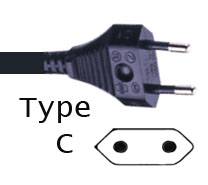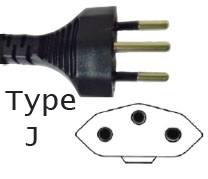Switzerland, located in Central Europe, is a landlocked country known for its stunning alpine scenery, charming cities, and efficient public transportation. From the snow-capped peaks of the Swiss Alps to the picturesque towns of Lucerne and Interlaken and the cosmopolitan city of Zurich, Switzerland offers travelers a perfect blend of natural beauty, cultural heritage, and outdoor adventures.
Ultimate Switzerland Travel Guide
Destinations
Best time to go
The best time to visit Switzerland depends on your interests. Summer (June to August) is popular for outdoor activities like hiking, mountain biking, and lake cruises, with mild temperatures and longer daylight hours. Winter (December to February) offers excellent skiing and snowboarding opportunities in the Swiss Alps, with picturesque snow-covered landscapes and festive markets. Spring (March to May) and autumn (September to November) are ideal for exploring cities, enjoying scenic train rides, and experiencing fewer crowds.
Average Temperature By Month
January: 0°C (32°F)
February: 1°C (34°F)
March: 4°C (39°F)
April: 8°C (46°F)
May: 13°C (55°F)
June: 17°C (63°F)
July: 19°C (66°F)
August: 19°C (66°F)
September: 15°C (59°F)
October: 10°C (50°F)
November: 4°C (39°F)
December: 1°C (34°F)
What To Expect
Time Zone:
Central European Time (CET), UTC+1.
Currency:
The official currency of Switzerland is the Swiss Franc (CHF). Credit cards are widely accepted in major cities and tourist areas, but it's advisable to carry some cash for smaller establishments and rural areas.
Language:
Switzerland has four official languages: German, French, Italian, and Romansh. The predominant language varies by region, with German spoken in the central and eastern parts, French in the western part, Italian in the southern part, and Romansh in some parts of the southeastern region. English is also widely spoken, especially in tourist areas.
Airport:
Zurich Airport (ZRH) and Geneva Airport (GVA) are the two main international airports in Switzerland, serving as primary entry points for international travelers.
How To Get Around
Public Transport: Switzerland has an extensive and efficient public transportation network, including trains, buses, trams, and boats. The Swiss Travel System offers various passes, including the Swiss Travel Pass and Swiss Half Fare Card, providing unlimited travel on trains, buses, and boats across the country.
Rental Cars: Renting a car is an option for exploring remote areas and scenic routes, but it’s not necessary for traveling within cities and major tourist destinations, where public transport is highly reliable and convenient.
Cable Cars and Funiculars: Switzerland is renowned for its cable cars and funiculars, providing access to mountain peaks, scenic viewpoints, and hiking trails. These mountain transports offer breathtaking views of the Swiss Alps and are a must-do experience for visitors.
Taxis/Uber: Taxis are available in major cities and towns, but they can be expensive. Uber operates in some Swiss cities, providing an alternative for transportation.
Average Temperature By Month:
January: 0°C (32°F)
February: 1°C (34°F)
March: 4°C (39°F)
April: 8°C (46°F)
May: 13°C (55°F)
June: 17°C (63°F)
July: 19°C (66°F)
August: 19°C (66°F)
September: 15°C (59°F)
October: 10°C (50°F)
November: 4°C (39°F)
December: 1°C (34°F)
Plugs:
Switzerland uses Type C and Type J electrical plugs, with a standard voltage of 230V and a frequency of 50Hz.
VPN:
Using a VPN is advisable for secure internet browsing, especially when accessing public Wi-Fi networks.
Safety:
Switzerland is known for its safety and low crime rate, making it a relatively safe destination for travelers. However, it's essential to take standard precautions, such as safeguarding belongings and being aware of your surroundings.
Credit Cards and Banks
Credit Cards: Credit cards are widely accepted in Switzerland, especially in urban areas, tourist destinations, and larger establishments. Visa and MasterCard are the most commonly accepted cards, followed by American Express and Diners Club. However, it’s always a good idea to carry some cash, especially when traveling to smaller establishments or more remote areas.
Debit Cards: Debit cards, known as “Maestro” or “PostFinance Card” in Switzerland, are commonly used for purchases and ATM withdrawals. Most Swiss banks issue debit cards to their customers, which are equipped with chip-and-PIN technology for security. Informing your bank of your travel plans is advisable to prevent any issues with card usage abroad and to check for potential foreign transaction fees.
ATMs: ATMs, known as “Bancomaten” or “Geldautomaten” in Switzerland, are readily available throughout the country. They can be found in cities, towns, tourist areas, and even in some rural locations. Swiss banks may charge minimal fees for ATM withdrawals, but foreign banks may impose additional fees for international transactions. Using ATMs affiliated with major banks is recommended for security.
Currency Exchange: While the official currency of Switzerland is the Swiss Franc (CHF), the Euro (EUR) is also widely accepted, especially in tourist areas and along the border regions. It’s advisable to exchange your currency to Swiss Francs upon arrival. Foreign currencies can be exchanged at banks, currency exchange offices (Wechselstuben), some hotels, and at airports. US dollars and British pounds are often accepted for exchange, especially in tourist areas.
Banks: Switzerland is renowned for its banking sector, which includes both large international banks and smaller regional banks. Some of the major banks in Switzerland include UBS, Credit Suisse, Raiffeisen, and PostFinance. These banks offer various financial services, including current accounts, savings accounts, loans, and investment products. Many banks also provide online banking services and have extensive branch networks.
Traveler’s Checks: Traveler’s checks are becoming less common worldwide, including in Switzerland. While some banks may still cash traveler’s checks, they are not as widely accepted as they once were. It’s recommended to carry cash or use alternative payment methods such as credit/debit cards or ATMs for transactions.
Tips for Banking in Switzerland:
- Notify your bank before traveling to Switzerland to inform them of your travel plans.
- Keep your PIN and card information secure, especially when using ATMs in crowded tourist areas.
- Familiarize yourself with the current exchange rate to ensure fair transactions when exchanging currency.
- Switzerland is known for its high level of banking privacy and security, but it’s still advisable to exercise caution with your financial information and transactions.
Understanding the banking system in Switzerland can help ensure a smooth and convenient financial experience during your travels in the country.
Locations
Switzerland
TRAVEL FACTS
US State Dept Travel Advisory
The US Department of State currently recommends US citizens exercise normal precautions in Switzerland. Consult its website via the link below for updates to travel advisories and statements on safety, security, local laws, and special circumstances in this country.
https://travel.state.gov/content/travel/en/traveladvisories/traveladvisories.html
Passport/Visa Requirements
For the latest passport and visa requirements for this country, please consult the U.S. State Department’s “Learn About Your Destination” search tool, available through the link below.
US Embassy/Consulate
[41] (031) 357-70-11; US Embassy Bern, Sulgeneckstrasse 19, CH-3007 Bern, Switzerland; https://ch.usembassy.gov/
LGBTQIA+ Travelers
Telephone Code
41
Local Emergency Phone
Ambulance: 144; Fire: 118; Police: 117
Vaccinations
The CDC and WHO recommend the following vaccinations for Switzerland: hepatitis A, hepatitis B, tickborne encephalitis, meningitis, polio, measles, mumps and rubella (MMR), Tdap (tetanus, diphtheria and pertussis), chickenpox, shingles, pneumonia, COVID-19, and influenza.
Climate
Temperate, but varies with altitude; cold, cloudy, rainy/snowy winters; cool to warm, cloudy, humid summers with occasional showers
Currency (Code)
Swiss francs (CHF)
Electricity/Voltage/Plug Type(s)
230 V / 50 Hz / plug types(s): C, J


Major Languages
German (or Swiss German), French, Italian, English, Portuguese, Albanian, Serbo-Croatian, Spanish
Major Religions
Roman Catholic 34.4%, Protestant 22.5%, other Christian 5.7%, Muslim 5.5%
Time Difference
UTC+1 (6 hours ahead of Washington, DC, during Standard Time); daylight saving time: +1hr, begins last Sunday in March, ends last Sunday in October
Potable Water
Yes
International Driving Permit
Suggested
Road Driving Side
Right
Tourist Destinations
Matterhorn; Jungfraujoch; Interlaken; Lucerne; Lake Geneva; Chateau de Chillon; Zurich; Lake Lugano; Bern
Major Sports
Soccer, ice hockey, tennis, skiing, schwingen (wrestling)
Cultural Practices
Swiss people tend to be polite, reserved, direct, and a little guarded at first.
Tipping Guidelines
A service charge is typically added at restaurants so no tipping is needed, but you can round up the bill for the wait staff. Round up a taxi fare or add 5%. Tipping is usually expected for hotel staff. A bellhop should receive 1-2 francs for each bag carried.
Souvenirs
Chocolate; cuckoo clocks, music boxes, and other wood carved items; cheese; Swiss army knives; watches/clocks; paper cut pictures; embroidered fabric; schnapps spirits
Traditional Cuisine
Rösti — grated potato patties sometimes including herbs and spices, onions, ham, or cheese and pan-fried in butter or oil; the dish is cut into wedges for serving
Please visit the following links to find further information about your desired destination.
World Health Organization (WHO) – To learn what vaccines and health precautions to take while visiting your destination.
US State Dept Travel Information – Overall information about foreign travel for US citizens.
To obtain an international driving permit (IDP). Only two organizations in the US issue IDPs:
American Automobile Association (AAA) and American Automobile Touring Alliance (AATA)
How to get help in an emergency?
Contact the nearest US embassy or consulate, or call one of these numbers:
from the US or Canada – 1-888-407-4747 or from Overseas – +1 202-501-4444
Central Intelligence Agency.
The World Factbook.
/the-world-factbook
(May 8, 2024)



